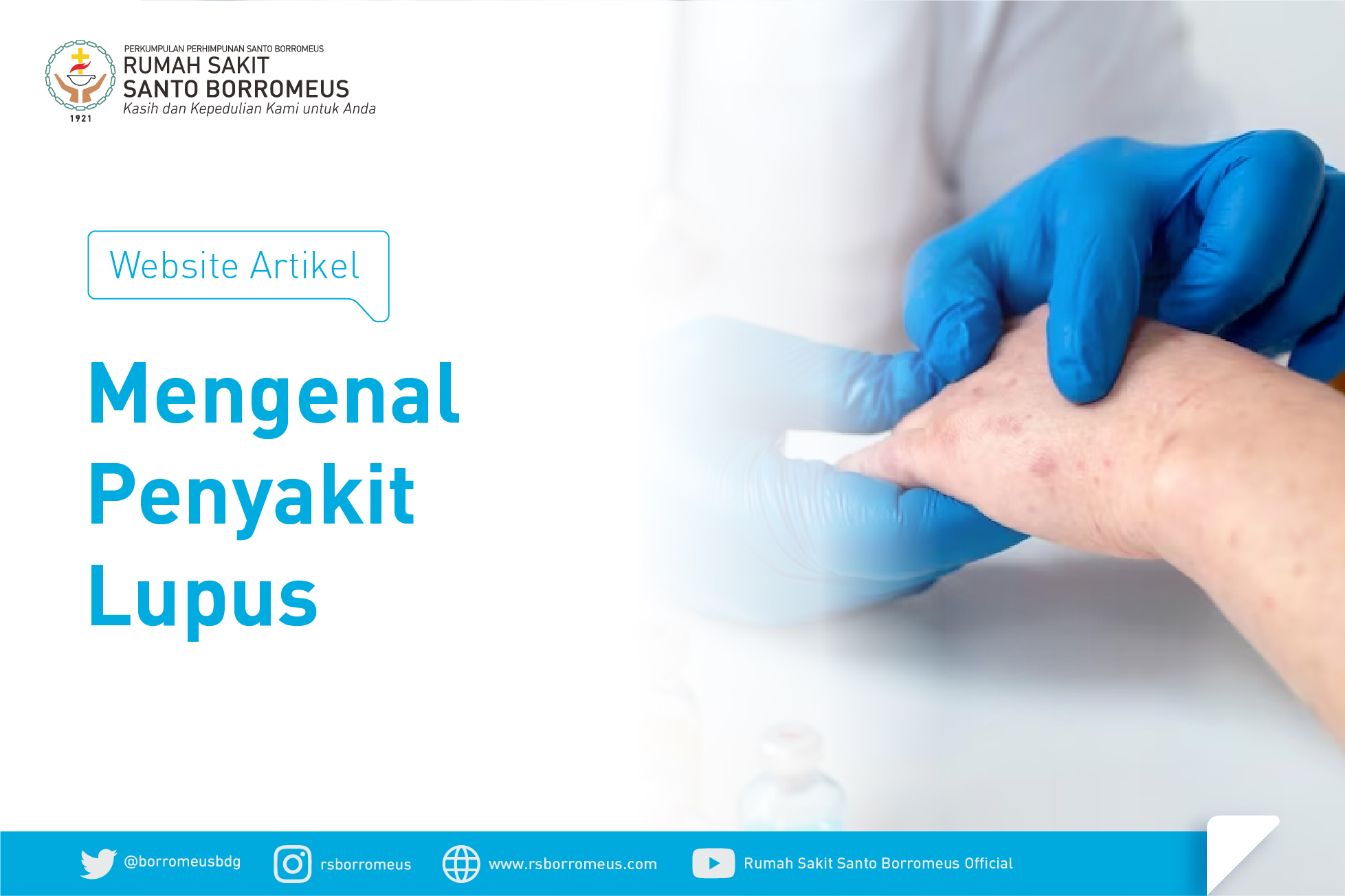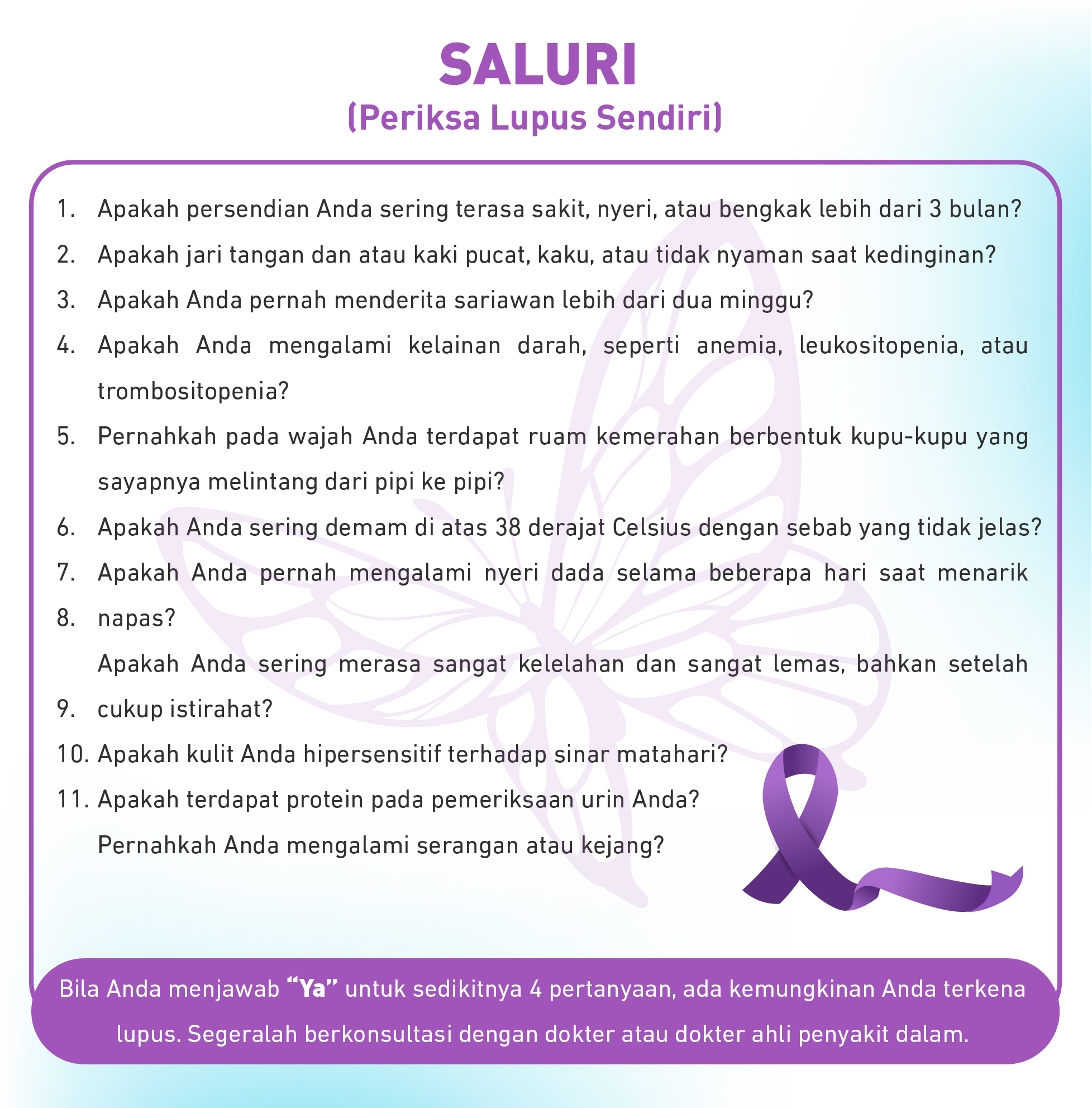
Getting to know Lupus Disease
What is Lupus?
Lupus is one of the autoimmune diseases that affects various organs in the body and is chronic. The manifestations are so diverse that it is sometimes difficult to recognize and often becomes delayed.
If this lupus disease goes unnoticed and is not diagnosed immediately, damage can occur to various organs and the consequences can be fatal, even to death, but if treated immediately, patients can generally return to normal health, even though they have to undergo long-term treatment.
Apa yang dimaksud penyakit autoimun?
Our body has a defense system against disease seeds that enter the body, called antibodies. If the antibodies formed by the body become excessive, then attack the body's own internal organs, it is called an autoimmune disease. The exact cause is unknown but is thought to be related to various factors including genetic, environmental (infection, chemical exposure etc) and hormonal.
Among the various symptoms, the most common are:
› Symptoms on the skin include a reddish rash when exposed to sunlight
› Rash on the face that resembles a butterfly (malar)
› Blackish rash on the skin resembling a scar (discod)
› Pain and swelling in the joints
› Excessive hair loss
› Thrush
› Seizures and headaches
› Psychosis and depression disorders
Furthermore, laboratory examinations can find abnormalities in the blood such as anemia (lack of red blood cells), thrombocytopenia (lack of platelets) or leukopenia (lack of white blood cells). In urine examination, protein leakage from the kidneys can be found. In addition, lupus can also affect the eyes, heart, lungs, intestines and other organs.
With the variety of symptoms of this disease, this disease needs multidisciplinary treatment such as rheumatologists, immunologists, specialists in internal medicine, skin, eyes, and other experts related to the patient's condition.

Lupus is not a disease to be feared but knowing lupus and its symptoms, and learning to live with lupus makes us more vigilant and at the same time if you are a patient then hopefully more in control.
Material by: dr. Laniyati Hamijoyo SpPD-KR, M-Kes



